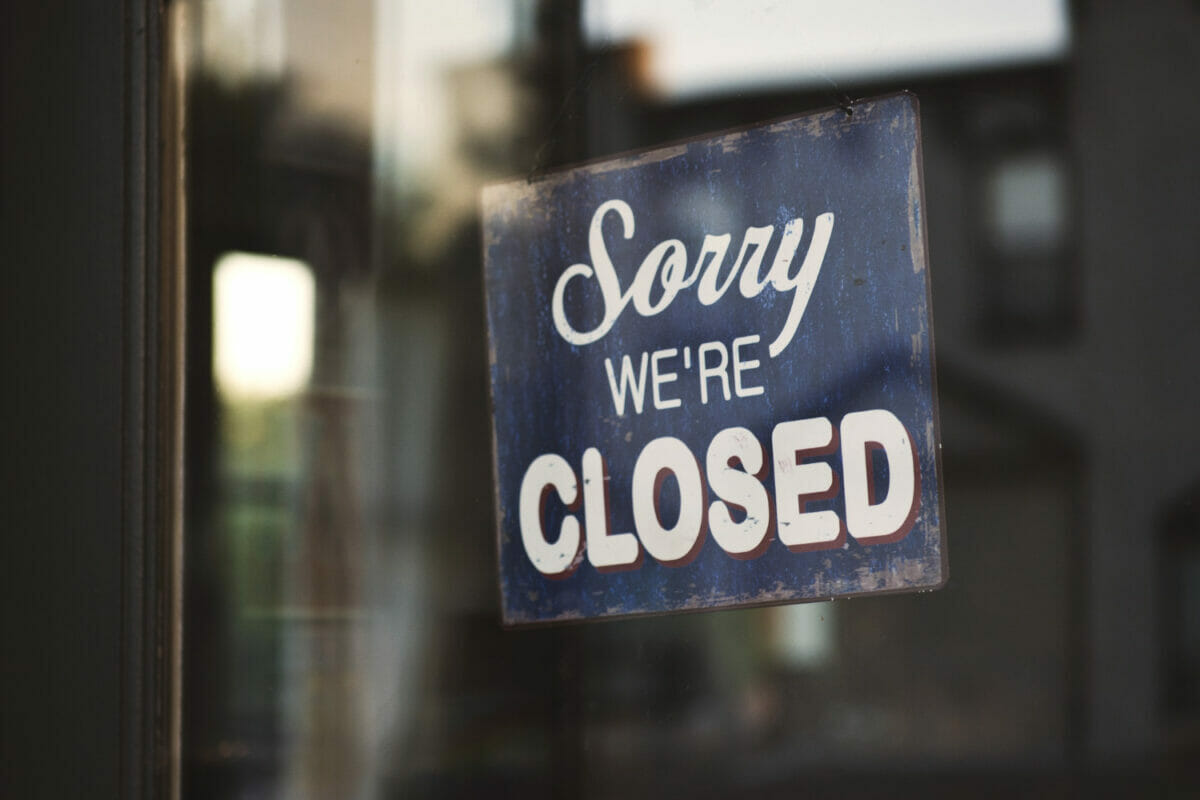Empty High Streets – What Can Be Done About It?
16 May 2023, by Verity Editor

16 May 2023, by Verity Editor

It only takes a stroll down one of Britain’s many small town high streets to notice that commercial properties are emptying at an alarming rate. It is believed that in 2021 as many as 17,532 closed permanently with only 21 opening their doors for the first time.
Away from the world of retail, even offices and industrial spaces are suffering. Since COVID-19 has arrived, companies have been embracing working from home as the new normal, abandoning office spaces.
But what are the factors behind emptying commercial properties, and what can be done to stem the tide? Here’s what we know:
One of the most prevalent reasons for commercial properties emptying is the dramatic increase in business rates that landlords have seen in recent months. In 2020, Palmers department store in Great Yarmouth was forced to close its doors. The iconic store had been open since 1837. The former chief executive stated the company’s annual business rate bill of £2.8m was the final nail in the coffin for Palmers. They have been forced to close 23 stores, costing 1,000 people their jobs.
Emptying commercial properties is one thing, but why are they so often staying empty? This question is answered by empty rates liabilities. Following an initial period where relief is available to those commercial property landlords who can jump through the necessary administrative hoops to secure it, liabilities are introduced for the duration of the building being empty. This can put considerable financial stress on a landlord who is attempting to secure a new tenant without receiving rental income in the meantime.
It’s impossible to talk about the decline of Britain’s high streets without mentioning the rise of internet shopping – an industry built on the convenience of having packages delivered directly to your door. Not only that, but internet shopping also offers up a whole world of variety, as well as offers such as Cyber Monday and Amazon’s Prime Day. Increasing attention on internet shopping has led many retailers, such as retail giant Topshop, to close their doors. ASOS, an online fashion store, has since brought Topshop, ensuring their absence on the high street.
It comes as no surprise that coronavirus has been a key culprit in our disappearing high streets in recent times. After multiple lockdowns, retailers have struggled to make enough to save their businesses. Despite the government’s attempts to put relief in place, many landlords are finding that it is not enough. It is thought that 14% of Britain’s high streets, retail parks and shopping centre outlets are now empty as a direct result from multiple lockdowns. With the government announcing that the furlough scheme and business rates relief will be coming to an end soon, we can only wait to see how this takes its toll on already struggling industries.
It’s one thing to recognise that there’s an issue to be tackled within commercial property, but it’s another to formulate a solution.
Some shopping centres are fighting back against internet shopping by launching new ‘pop up’ events. Westfield London announced they are hosting a new interactive pop-up shopping experience, trying to encourage a younger audience back into stores. The event is thought to focus on sustainability and feature big brands in fashion, beauty and lifestyle. However, we must ask if this is a long-term solution to an ever growing problem?
There’s also a desperate need for business rates to be reviewed, following feedback from so many small companies highlighting how they’re suffering. The increase in business rates also arguably creates a paradoxical situation, whereby small local shops don’t have the means to compete with internet shopping, emptying the high street at twice the pace.
Meanwhile, landlords need to seek out and accept assistance with their empty rate liabilities in order to relieve the pressure of finding a new tenant for their empty commercial property. Engaging with Verity, for example, can provide the support and advice needed, whilst ensuring landlords can save up to 100% of their empty rates liabilities. The result is a money-saving exercise which paves the way for landlords to focus on new tenants.
There are, of course, likely to be a myriad of additional factors for why commercial properties are empty and as time goes on we will see the full effect of coronavirus on our high streets. For now, it’s important for everybody to understand the factors we do know about, what’s at stake, and how they can help to keep commercial property – and by extension, the British high street – alive and well.
Only then might we be able to do something about it.
To find out more about how Verity – the only fully guaranteed Empty Rates mitigation scheme in the UK – can help with relieving the financial burden of your empty property. Don’t hesitate to get in touch or explore our website. We’re happy to help; our expert advice is completely free.
Want to get started? Send your Rates bill to save@veritygroup.uk and we’ll check your bill for free.

We have used Verity at one of our managed buildings in Westminster. The scheme was presented clearly to us and most importantly our client. We have had no issues during the cycles and are looking at implementing the scheme at other London sites. Overall a very good experience, and the service has been delivered as described and generated real savings for our client.
Jacob Bearman